Fasting for healing the gut is a topic I wasn’t sure I’d write about, but here we are. Because I think it’s really important.
What Exactly Does Fasting Mean?
Because fasting for healing the gut has become a popular topic, I want to break it down more for you today.
There is not one way to go about fasting, so here are 2 main different types of fasting people practice (with several options within each):
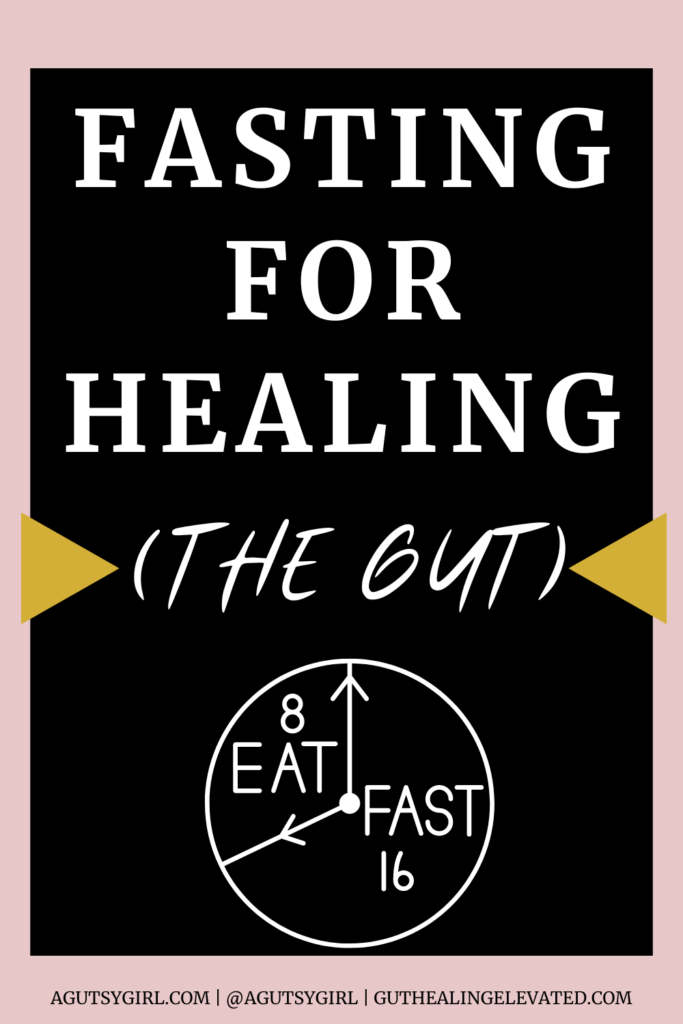
1. Intermittent Fasting (5 ways)
Dr. Amy Shah shares a lot of great things on Instagram regarding intermittent fasting.
She once shared THIS great graphic that broke down the following types of intermittent fasts:
- Alternate day: 36 hours fast, 12 hours eat
- Eat-stop-eat: full day fast, 1-2 days a week
- 5:2: full day fast for 2 days but with 500-600 calories
- Reverse fast: 12 hour starting before 8pm, 2 days 16 hours
- 16/8: eat from 11am – 7pm
During the fasting window, you eat no food and are limited to only drinking water, tea, and black coffee (though that area is a little gray because many people say it’s okay to have “Bulletproof coffee” – i.e. coffee with coconut oil, ghee butter, etc. – as well).
During the feeding window, you eat as you normally would.
If you have SIBO, and it’s active, you should eat high-quality, nourishing foods to help heal your gut, typically while also remaining on some sort of low FODMAP diet.
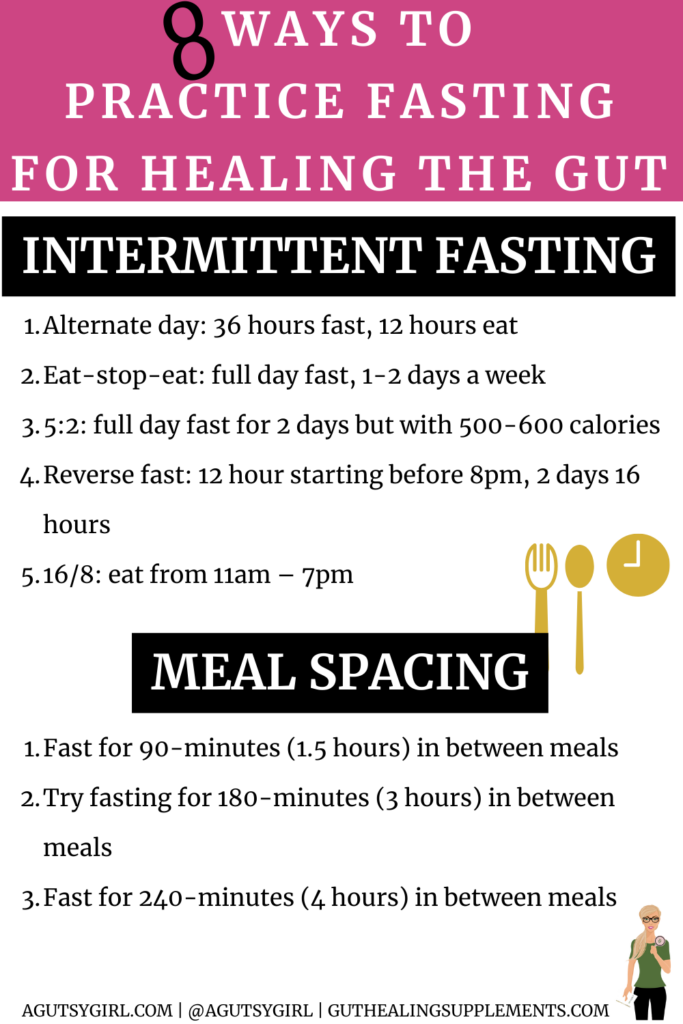
2. Fasting in between meals
This is known as meal spacing, and it has everything to do with the migrating motor complex (MMC).
MMC = migrating motor complex
The MMC acts as a “sweep” through the digestive tract. Think of it as housekeeping. Once activated, it “sweeps” through, cleaning up residual undigested material through the digestive tube.
However, it can only be activated if you’re allowing at least 90 – 120 minutes between eating. As soon as you eat again, it stops.
What is MMC?
The migrating motor complex (MMC) is a cyclic, recurring motility pattern that occurs in the stomach and small bowel during fasting; it is interrupted by feeding.
There are various lengths of time presented for “how long to wait in between feedings,” but we do know that four phases combine for the MMC cycle.
According to Science Direct, the total duration is 84 – 112 minutes.
The reason you see anywhere from 90 minutes – 4 hours suggested as appropriate meal spacing length is due to individual factors.
Thus, like everything else with gut healing, you’ll need to practice, test, and be meticulous with your recording to see what works for you personally.
Therefore, here are 3 ways to try fasting via meal spacing:
- Fast for 90-minutes (1.5 hours) in between meals
- Try fasting for 180-minutes (3 hours) in between meals
- Fast for 240-minutes (4 hours) in between meals
The period of time that you choose will be completely up to you and your body is responding.
It’s super easy to keep track of this if you have my gut healing journaling SYSTEM.
In the journal, I also give you a Journal Key to help you easily track either/both Intermittent Fasting and Meal Spacing.
As you can see, there are different ways to go about fasting; longer fasts and shorter ones.
What you choose will depend on several factors, but make no mistake about it – they can definitely help the healing process..
Fasting for Healing (the gut)
Before I share with you all the health benefits of fasting and reasons I personally love it, I want to share the dark side of it, too.
It’s important to me that whenever I share something that’s “good and healing,” I also share the other side to it.
Nothing is ever black and white on the gut healing journey.
Dark Side of Fasting
1. Trigger
If you have a history of disordered eating and physical temptations for not eating at all, practicing fasting can quickly become the trigger that makes you relapse. If you’re honest with yourself, you know if this is you or not.
2. Not practicing it properly
It’s not “gut healing” if, when you are consuming food, it’s filled with 80% SAD (Standard American Diet) foods. A diet comprised primarily of the SAD diet negates the positive effects fasting can have on healing your gut.
And no, this is not me vilifying food.
It’s telling you the truth about the effects of diet because they are very real. You can’t eat complete junk 80% of the time while also trying to heal your gut and aiming for better health.
3. Blood sugar conditions
If you have diabetes or other conditions where tinkering with blood sugar levels can have a negative impact, this might not be for you.
Also, some prescription medication protocols require certain eating types, foods, and patterns, so work with your doctor always on something like this.
4. Not for everyone
Maybe it’s just not for you. You’ve tried it time-and-time again; you’ve even willed it into happening.
But each time you try it, you fail miserably for one reason or another.
Or worse yet, you get sick with some sort of adverse reaction.
Even though those who believe fasting is the end-all be all, it’s actually not. Because, in fact, nothing is for everyone.
Benefits of Fasting for Gut Healing
Click HERE to save these benefits of fasting for gut healing for later.
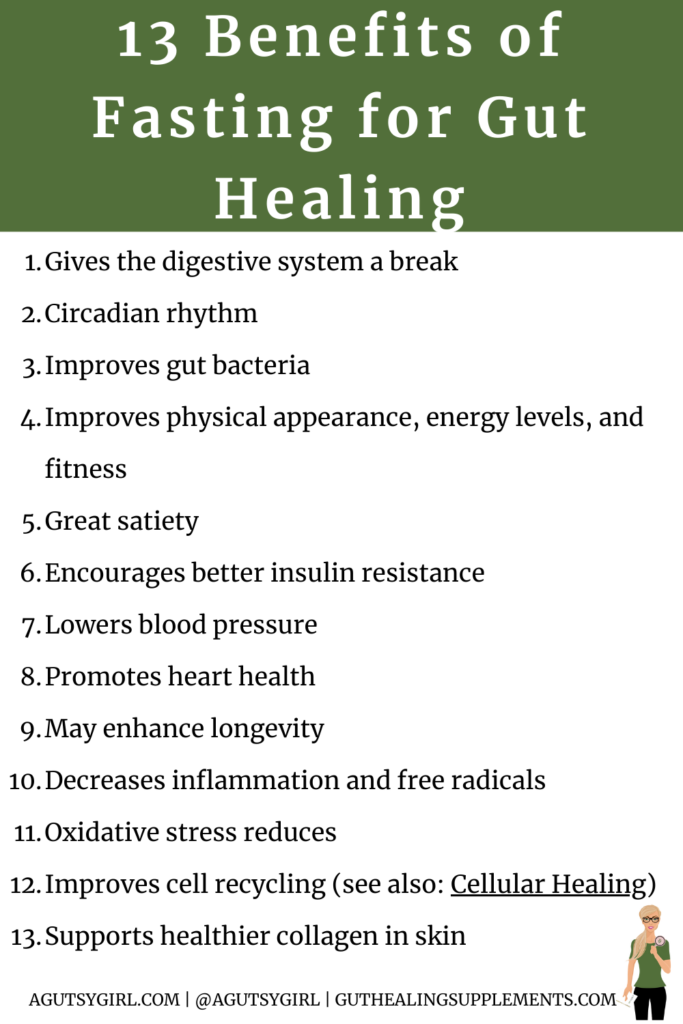
Now, I want to share the benefits of fasting for gut healing and also why I personally love it so much for a healthy lifestyle.
While there are different types of fasts, the true definition of fasting is,
abstain from all or some kinds of food or drink, especially as a religious observance.
I have never practiced a religious fast, but I do practice fasting on a daily basis.
3 Reasons I Believe in Fasting for Gut Healing
1. Give the digestive system a break
The first thing to make note of is what I mentioned above — gut motility; giving the digestive system a break.
Gut motility is controlled by the nervous system in the gut. This is known as the enteric nervous system. Serotonin is a neurotransmitter that relays signals between nerve cells, or neurons, regulating their intensity.
90% of serotonin is contained within the gut (and remember, it’s in control of motility). A major feature of gut motility is the Migrating Motor Complex (MMC, a major feature of gut motility).
But if the digestive system is always working, then the MMC never gets the chance to do its job. And its job is to sweep residual undigested material through the digestive tube.
Complicated, but you see the chain of events and why it’s important to give your digestive system a break?
2. Circadian rhythm
Did you know that even your gut microbiome has a circadian rhythm? The circadian rhythm is important on many different levels as it’s the reaction to external cues, such as the light-dark cycle.
This is a fascinating topic, and if you want to get inspired to learn more check out THIS research and table 1.
3. Improves bacteria
At Cedars-Sinai, they have extensive research on this concept. They studied healthy humans to look at the gut microbiome to see how it changes with 2 fasts per week.”
And here is what they found,
At the 12-16 hour mark, we saw a dramatic shift in the gut microbiome population after fasting for that period. Certain bacteria are super responsive to fasting, and those tend to be beneficial bacteria. The concept is that with intermittent fasting, you could permanently grow those bacteria and experience the associated benefits.
Besides those three things, Kalea Wattles, ND states:
A therapeutic fasting intervention may be an appropriate component for a personalized treatment strategy and may improve health across a range of areas. From mental clarity and cognitive performance to cardiometabolic health to the effectiveness of cancer treatments. The potential benefits of fasting likely work through multiple pathways, such as reducing oxidative stress, enhancing mitochondrial health, and triggering autophagy.
The even longer list of positive effects of fasting includes things like:
- Improves physical appearance, energy levels, and fitness
- Great satiety
- Encourages better insulin resistance
- Lowers blood pressure
- Promotes heart health
- May enhance longevity
- Decreases inflammation and free radicals
- Oxidative stress reduces
- Improves cell recycling (see also: Cellular Healing)
- Supports healthier collagen in skin
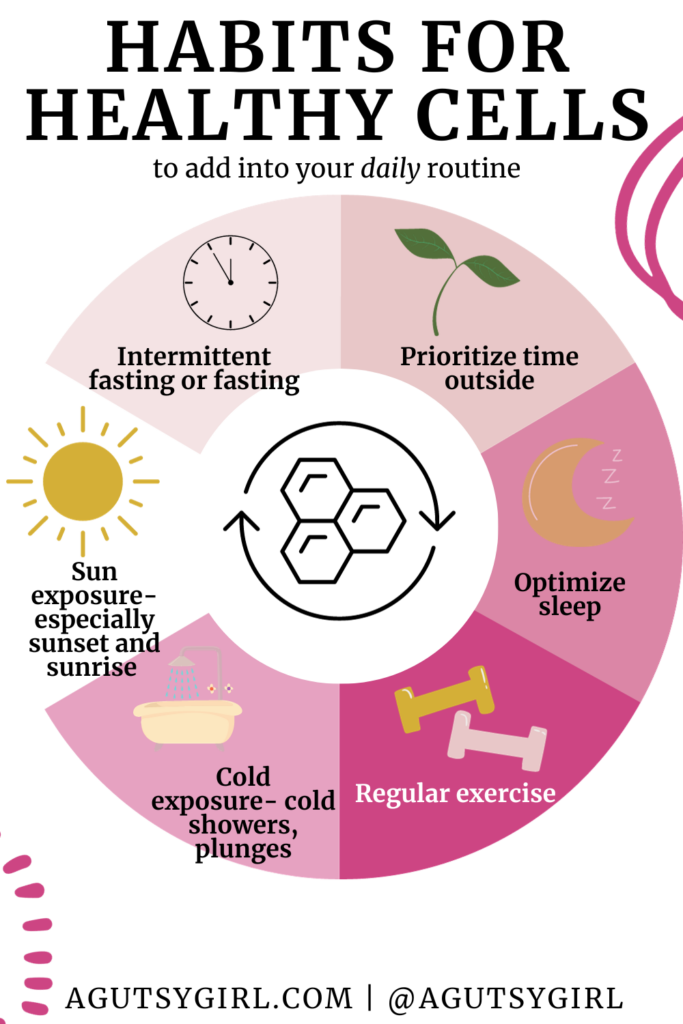
How I Personally Fast
I saw benefits for reducing bloating almost instantly even from the first time fasting.
In the beginning, I did short periods of time, to which I found whole system healing.
As a first step, I didn’t dive in head first with my first fast on a 24-hour fast. And even still, I saw dramatic improvement.
That being said…..
- Almost every single day I practice Intermittent Fasting. I’ve written all about it HERE.
- I also practice meal spacing on a daily basis. And I’ve written about that HERE and HERE.
A Typical Day of Fasting for Gut Healing
You’ll find more about how I’ve practiced both Intermittent Fasting and Meal Spacing in the posts linked above, but a general overview looks like this:
- 4:30-7 am: thyroid medication, water, just a little coffee mixed with LMNT + collagen
- 7-9 am time frame: eat a meal, take supplements – no liquids, except for the water with supplements
- 9-12/1 pm sometime: fast, nothing but water and, if needed, more electrolytes
- 12-1:30 pm sometime: eat a meal, take supplements, except for the water with supplements
- 1:30 – 5/5:30 pm sometime: fast, nothing but water
- I’d guess a few times a week I am really hungry during this time, so I’ll have a protein bar or something small. And yes, that does break the fast, but see below; no hard rules.
- 5-6 pm sometime: dinner, take supplements – no liquids, except for the water with supplements
- 6-ish pm: done eating for the day – nothing again until 7 – 9 am the next day (which means my Intermittent Fasting is a max of 15 hours typically).
Fasting for Gut Healing vs. Disordered Eating
I must leave you with some final thoughts about fasting for gut healing vs. fasting as a trigger for disordered eating.
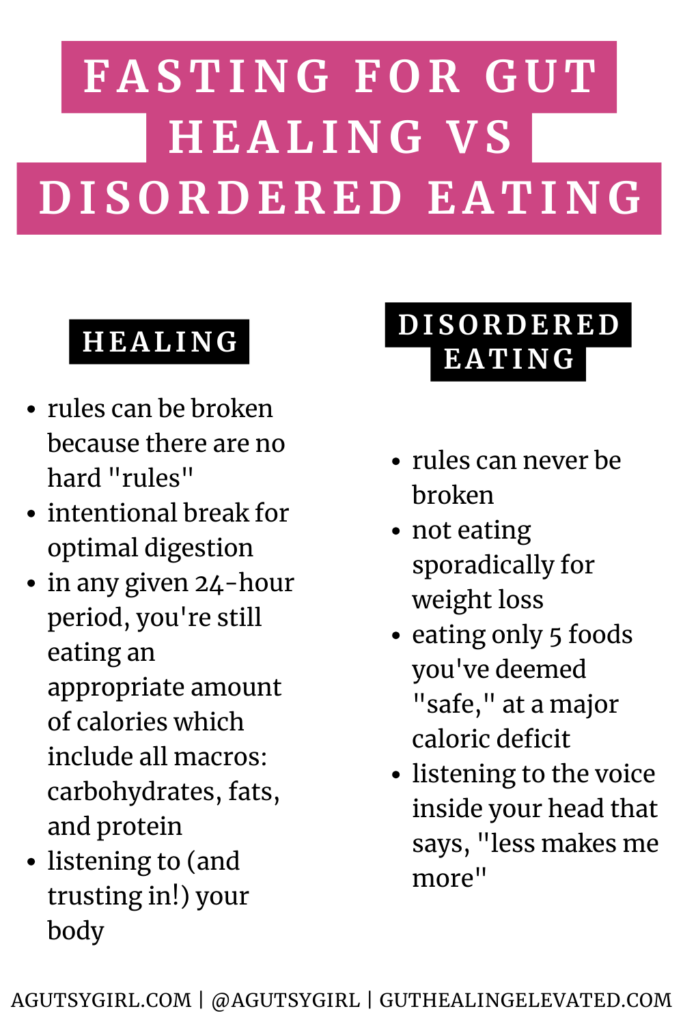
Healing
- rules can be broken because there are no hard “rules”
- intentional break for optimal digestion
- in any given 24-hour period, you’re still consuming appropriate calorie intake which include all macros: carbohydrates, fats, and protein
- listening to (and trusting in!) your body
Disordered Eating
- the duration of your fast rules can never be broken
- not eating for longer periods of time solely for weight loss
- eating only 5 foods you’ve deemed “safe” or participating in water fasting for days on end at a major caloric deficit
- listening to the voice inside your head that says, “less makes me more”
Please believe me when I say that the healing response will be positive if you’re truly viewing fasting not as calorie restriction, but as effective ways for boosting your gut health and simultaneously immune system.
Many have studied the correlation of fasting as it relates to SIBO. Since SIBO is an overgrowth of bacteria in the small intestine, it makes perfect sense.
When you fast, you are not putting anything extra into your small intestine to further the bacteria’s growth.
And I believe that my diligent and intentional fasting practice has been one of the most instrumental ways I’ve kept in 100% remission since 2018.
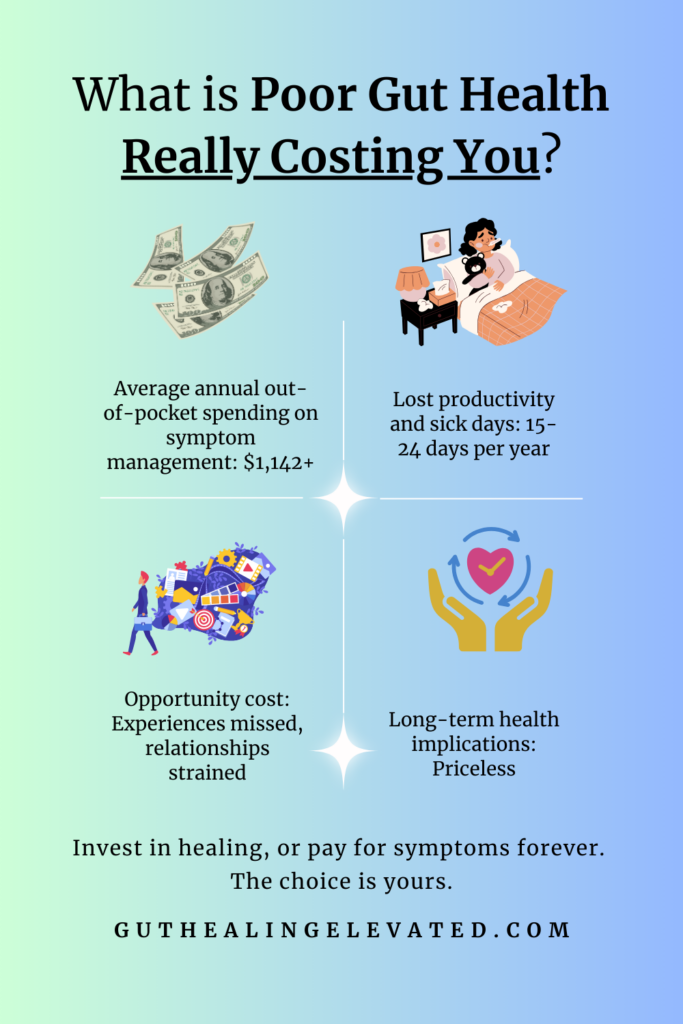
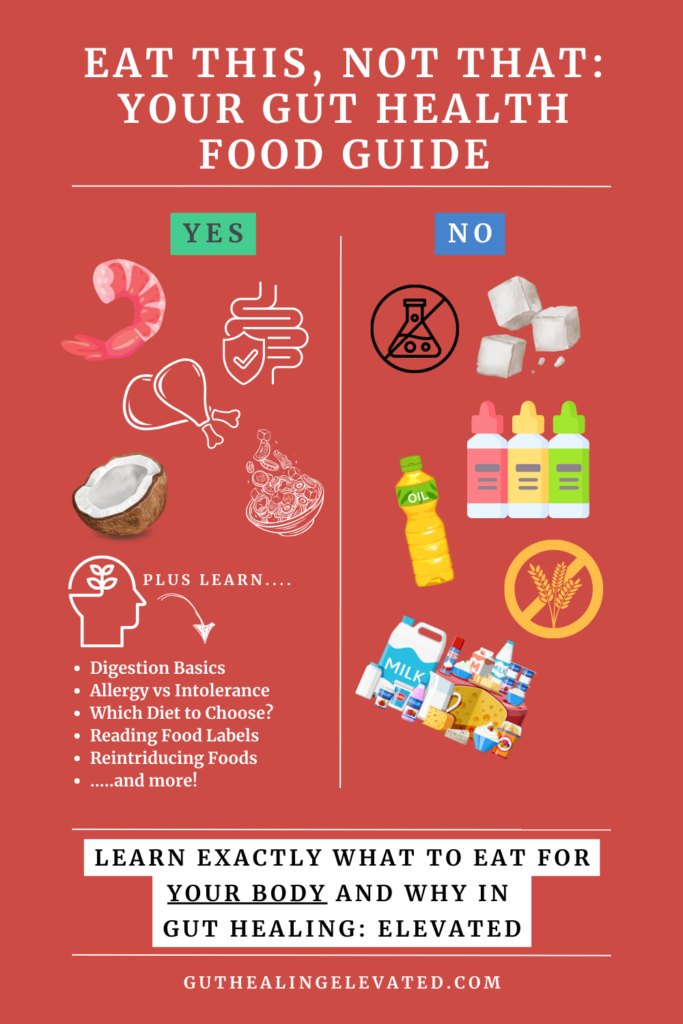
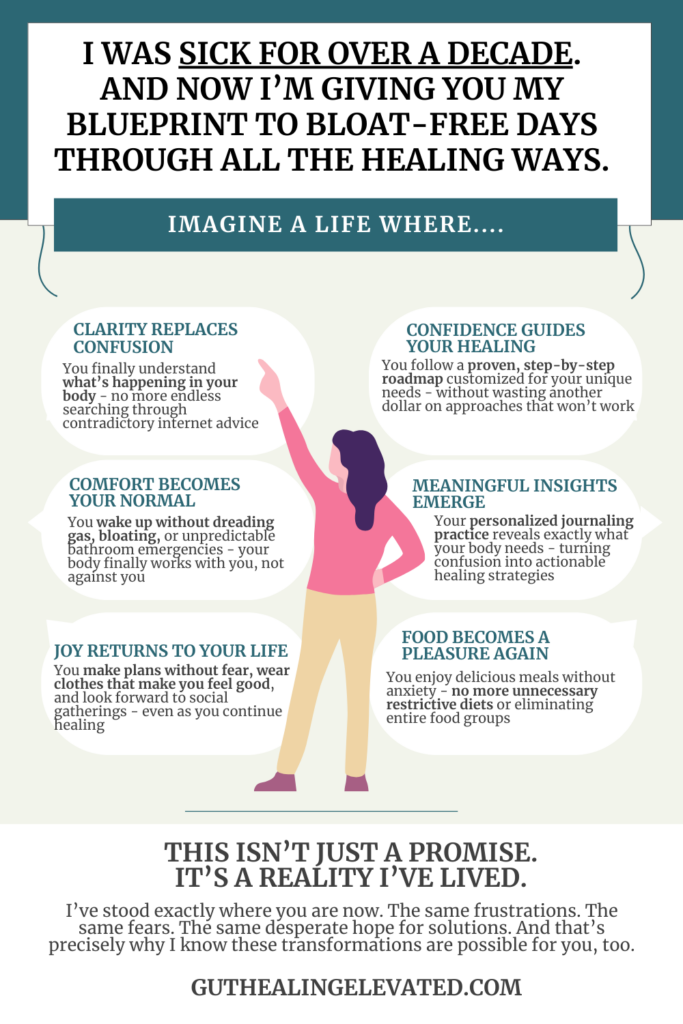
If you liked this post, you might also enjoy:
- Best Supplements for IBS Bloating
- Home Remedies to Relieve Bloating
- Does Coffee Cause Gas and Bloating {Food Intolerance + A Fun Way To Test}
Xox,
SKH
🤰 bloating be gone! weight loss through optimal gut health for women
💃ʜᴇᴀʟ ʏᴏᴜʀ ɢᴜᴛ. ʜᴇᴀʟ ʏᴏᴜʀ ʟɪfe.
🫶🏻 founder gutbyome.com






